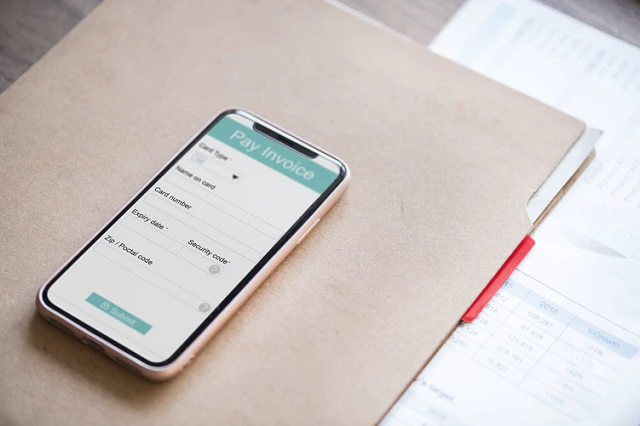
Image Credit
If you’ve recently found yourself in a less than perfect financial situation, you may be looking to really turn things around for yourself. But sometimes, you can’t always find the motivation to do that. There’s something about being in a less than ideal financial place that just makes it so much harder for you to turn things around. The motivation isn’t always there. But, if you know that you want to be in a good place with your finances, then you should find that actually, being able to get there should be motivation enough. Even if you are really motivated to turn things around, a lot of the problems for you could be that you just don’t know what you need to do. But when it comes down to it, you just need to get smart.
So, what does being smart with your money look like? In short, you really need to ensure that you’re stepping back, assessing your situation, and making a commitment to chaining things around. Once you know your habits and the patterns that you find yourself doing over and over again, then you need to work on changing them. Maybe you don’t even realize what you’re doing is causing the issues. Whether you’re overspending, not making the most of your money, or you’re struggling to earn more, you’ll want to get smart about your financial future from now on. And here’s exactly how you can do it.
1. Track Your Spending
The very first thing you need to do is absolutely non-negotiable. If you want to be smarter with your cash, then you absolutely have to ensure that you’re tracking what you spend. If you just buy what you want and purchase as you feel like it, you’ll never know where your money goes. Instead, you have to know exactly what you’re spending. So track it. There are apps that help you to track your spending, you could also look to do it manually by keeping your receipts. Either way, you’ll want to start tracking right away.
2. Set Up A Budget
Alongside tracking your spending, you really have to have a budget in place. This isn’t about limiting what you spend, but more about controlling it. By creating a budget, you have more of a say over where your money goes. You can allocate money to whatever you want, but it has to be accounted for. This is the only way to ensure that you’re being smart with your money.
3. Think Before You Swipe
A big step for you here will be to think before you swipe your card. Whenever you are purchasing anything, make sure that you have thought it out, that it’s something you need or that you really want. Try to do as many planning purchases as possible and avoid anything impromptu.

Image Credit
4. Cut Those Small Expenses
From here, one of the best ways to get smart is to watch the small amounts that you’re spending. Any little expense that you have, that you don’t really need, will be good to remove from your expenditure list. Think coffees on the way to work or small subscriptions that don’t add value to your life. Buy cutting out things that don’t matter, you could save a significant amount of money overall.
5. Cut Expenses You No Longer Need
Then, you can do the same with the larger ones too. Make sure that you have a huge list of everything that you pay out. Then you can start to trim it down. There are lots of ways that you can save on your monthly expenses, but removing those that are unnecessary is one of them. That way, you allocate more funds to the things that you do want to be spending on.
6. Make A Switch
For things that you can’t cut out, you should look to switch them. You will find that this is a big way you can cut down the cost of your expenses, but it’s also a smart move to make with your utilities especially. Each year, look to get a better rate on your bills, and do the same whenever things like your calling plans or insurance are due for renewal.
Image Credit
7. Downgrade What You Don’t Need
But there are going to be some payments that you think are fixed and that you can’t change. But that’s never the case. If you know that you’re paying a crazy amount for your car lease, then switch that too. Get a car that costs half the monthly price. It may not look as snazzy, but do other people’s perceptions matter more to you than your financial security? It’s the same with your mortgage. If your payments are incredibly high, then you should think about selling your property and getting somewhere cheaper than you can afford.
8. Get Smarter Cards
When it comes to your financial products, you need to get smart here too. Think about the credit cards that offer rewards or that add value. If you’re spending a lot on them, make sure you have a better rate or at least benefits that you can get a lot back from.
9. Switch Balances
When it comes to any debts that you have, if they’re large amounts, you’re going to want to ensure that you focus on paying them off in the smartest way possible. Sometimes, it’s best to consolidate them all into one loan so that you know you have one rate and one payment. But again, you need to work out if this is cheaper.

Image Credit
10. Get A Consolidation Loan
When it comes to any debts that you have, if they’re large amounts, you’re going to want to ensure that you focus on paying them off in the smartest way possible. Sometimes, it’s best to consolidate them all into one loan so that you know you have one rate and one payment. But again, you need to work out if this is cheaper.
11. Pay More Towards Your Debts
But even if you do that, you have to be able to pay as much as you can towards any debts that you have. If you want them gone, you need to throw money at them. So think about how you can pay off your debts quicker. If you’ve freed up money from your expenses, this is how you can do it.
12. Set Up An Automatic Savings Payment
Now, we need to talk savings. If you want to make sure that you’re getting some money behind you each month, set up a payment to your savings account that you won’t notice going.

Image Credit
13. Make Some Long-Term Investments
Then you’ll want to think about the long-term investment strategies that could work for you. If this means that you need to go slow to find your feet, so be it. Just make sure that you’re doing something for the long-term. You may not see a return here for ten or more years, but that’s the point. Because you will earn more the longer you have everything in savings.
14. Think About Your Retirement
From here, you’ll then want to make sure that you’re covering off your retirement planning too. Even if you have a 401k in place, there are other retirement ideas that you might like to go with, so ensure you give them some serious thought. If you know that you want to live out your retirement comfortably, then you have to have a plan in place. No buts!
15. Focus On Your Financial Goals
Finally, above all else, you have to ensure that you’re really thinking about your financial goals and where you want to go with your life. It’s important that you’re thinking about your lifestyle and the future, and not just today or the amount of money you want. Then, you’ll want to work on ways that you can prioritize your financial goals to make this happen. Then keep them in mind and you’ll easily be able to meet them.
Now that you’ve seen the list, you should find that you’re able to really change up the way that you approach your finances. Becoming smart with your money doesn’t have to be hard. But you do have to work at it. Each of the fifteen points above should help you to do that. Yet, you may find that not all of them work for you. And that’s okay. They’re not really supposed to. As long as you can find that some of them do, then you’re off to a great start.
Go slow and see what works for you. First aim to keep your spending on track, then see what you can do to start saving more money, and freeing up more cash for the things that you want to do with your life. It takes time, and it can be tough to commit to, but if you really want to make this happen, you will.
